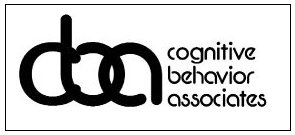According to the Sleep Foundation, depression affects around 20 million Americans. Still, many experts believe that depression remains an under-reported condition. On the one hand, the long-surviving negative attitude surrounding mental illness is a contributing factor. But, the subtle nature of depression itself is responsible for patients going undiagnosed for months or even years. And, insomnia and depression often appear together.
Depression is characterized by its gradual onset and the mixed appearance of symptoms. The result is that it can be difficult to know that you have it before it becomes severe. This is true even if you are the one affected by depression. Recognizing your depression can be tougher than you might expect.
The difficulty of diagnosis becomes worse when loss of self-worth is a common symptom. As a result, many individuals with depression are too worried about wasting another person’s time. They see their problems as insignificant. This mindset prevents them from seeking the help they need.
Factoring in Sleep
There are many symptoms regularly associated with depression. These can include physical symptoms like tiredness and changes in weight. But the more dangerous ones are mental. These include difficulty concentrating, hopelessness, loss of self-worth, and suicidal thoughts.
Almost all depression patients experience one symptom: sleep disorders. You can have trouble sleeping, called insomnia. Or, you might find yourself sleeping for extended periods, called hypersomnia. In either case, sleep disorders are repeatedly associated with depression. Experts see it both as a contributing cause and a core symptom, according to Duke Health.
What the Research Says
In fact, people who experience constant insomnia are ten times more likely to develop depression. An academic article in Dialogues in Clinical Neuroscience comments on sleep disturbance. It says that it is “prevalent…and often unresolved by treatment” in cases of existing depression.
In plain English, sleep disorders contribute to the start of depression. Not only that, but they make it worse over time. Unfortunately, current treatment plans often fail to treat the sleep disorder. Doing this opens the patient up to continued periods of depression until you can address the sleep disorder fully.
The Added Trouble with Insomnia and Depression
All sleep disorders have the potential to interfere with quality of life. Hypersomnia can negatively impact your ability to hold a job or succeed in school, but insomnia has yet another effect.
Being unable to sleep prevents your body from getting enough rest. So, first, your depression affects your interactions with other people. Then it limits your ability to focus. Finally, you’re also fighting the added effects of exhaustion.
How Common is Insomnia?
The Anxiety and Depression Association of America found that chronic sleeplessness affects 10-35 percent of the US. Obviously, people all over feel its effects. Research shows that sleep loss has noted effects on attention and working memory. This serves to compound already existing symptoms of depression.
In addition, sleep loss from insomnia impairs physical parts of the brain. Specifically, it harms the brain’s waste disposal symptom. What this means is patients become vulnerable to physical brain diseases. Such illnesses can even further weaken their ability to manage the symptoms of depression as they age. And they are difficult to treat.
Start With Sleep
Even if you are currently managing your depression, don’t ignore the importance of treating your sleep disorder. Don’t think of it as a separate entity. It can be contributing to your condition. But, your condition also might cause it.
You may need a small team to help you through this, and that is okay.
Depression is a multi-faceted disease. So, it naturally requires a wide range of expertise to treat it on all fronts. At Cognitive Behavior Associates, your care providers work with your doctor and therapist to manage your condition from multiple angles. Such an approach gives you the best chance at extended recovery.
For anyone reading this who hasn’t found aid, there are people ready to help. Please call the National Substance Abuse and Mental Health Services Administration Hotline at 1-800-662-4357.
If you are contemplating self-harm, remember your life does matter. Please call the National Suicide Prevention Hotline at 1-800-273-8255.

